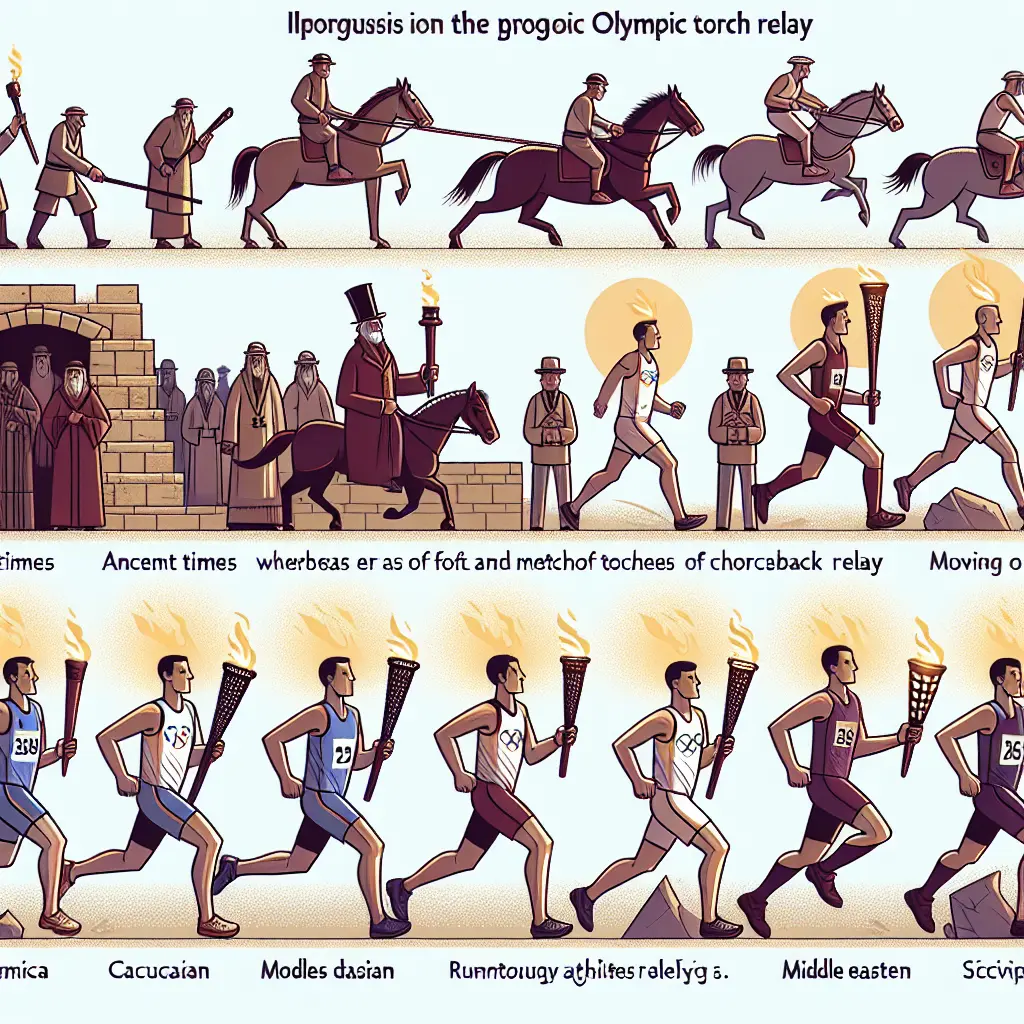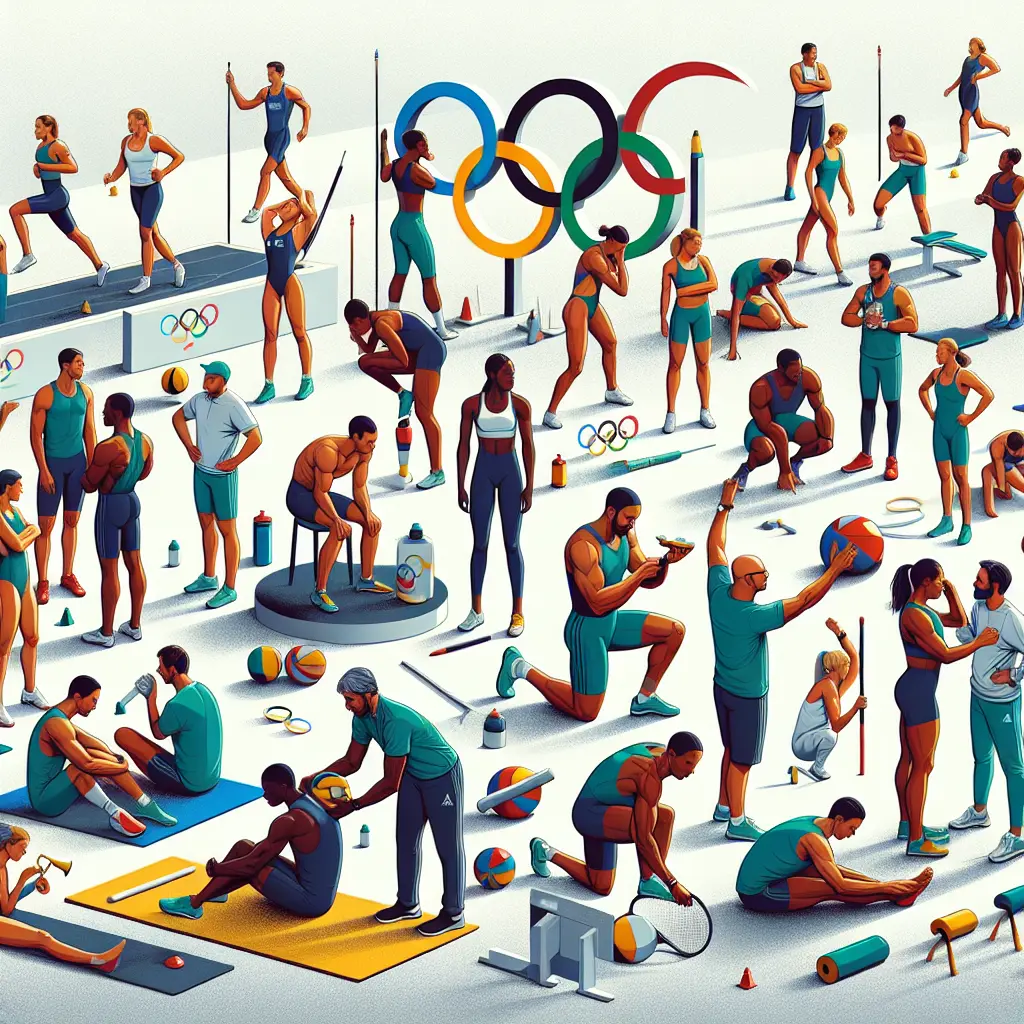The Olympic torch relay stands as a compelling symbol of unity and tradition, bridging the ancient Olympic Games with their modern counterparts. This ritual's evolution embodies the rich history of Olympic torch relay practices and reflects the enduring significance of the Olympic flame's journey across time and cultures. From its origins rooted in ancient Greece to the vibrant celebrations seen in the modern Olympic relay, the torch relay has become a beacon of hope and inspiration.
The Olympic torch relay is an enduring symbol of unity, celebrating the connection between the ancient Olympic Games and their modern iterations. Its origins can be traced back to ancient Greece, where fire was a sacred element representing purity and the favor of the gods. The modern incarnation of the torch relay began in 1936 at the Berlin Olympics, serving as a powerful medium for transmitting the Olympic flame's symbolic message across borders and cultures.
The Olympic flame journey begins with the lighting ceremony in Olympia, Greece. This ceremony marks the start of an international torch relay that winds through diverse cultures and landscapes, uniting nations in a shared celebration. Each torchbearer becomes a part of this global Olympic tradition, contributing to a profound cultural experience that transcends geographical boundaries.
As we explore the evolution of Olympic torch relay traditions, it's essential to consider the changes in the torch's design and functionality. Each host nation imbues its identity into the Olympic torch design, reflecting cultural values while honoring the history of the relay. This creative spirit showcases the adaptability and relevance of the Games in modern times.
Recent examples highlight this innovation, such as the 2020 Tokyo Olympic Games' torch, inspired by cherry blossoms—a symbol deeply rooted in Japanese culture. This design choice not only honored Japan’s natural beauty but also highlighted the cultural significance of the Olympic torch as a bridge between tradition and modernity.
Torch Relay Milestones and Their Impact
Throughout its history, the torch relay has adapted to reflect changing societal values and technological advancements. The integration of eco-friendly designs, such as hydrogen-powered torches used in recent relays, demonstrates a commitment to sustainability and environmental consciousness. These innovations highlight the Games' dedication to addressing contemporary issues while maintaining their historical essence.
The London 2012 Olympics featured another significant milestone with its torch relay route, which included regions impacted by conflict or disaster. This choice underscored the relay's role in promoting peace and reconciliation, reinforcing its symbolism as a beacon of hope.
In recent years, technology has played an increasingly important role in enhancing the torch relay experience. Live streaming and social media platforms allow millions to participate virtually in the Olympic flame journey, fostering a sense of inclusion and global community. This digital engagement has been crucial in maintaining interest and participation, particularly during times when physical attendance is restricted, such as during the COVID-19 pandemic.
For instance, during the 2021 Tokyo Olympics, despite the challenges posed by the pandemic, innovative approaches ensured that the relay continued safely. Technological solutions allowed for virtual participation, enabling people worldwide to feel connected to this iconic tradition.
Reflecting Contemporary Values Through Torch Design
The evolution of Olympic torch design reflects broader societal shifts. In recent years, there has been an emphasis on inclusivity and representation. For example, the Paris 2024 Olympics have announced plans for a torch design that incorporates elements from various cultures represented at the Games. This approach not only honors diversity but also aligns with global Olympic traditions that celebrate unity in diversity.
Additionally, sustainability remains at the forefront of design considerations. The use of recycled materials and renewable energy sources in recent torches underscores a commitment to environmental stewardship. These initiatives resonate with contemporary values and ensure that the Olympic flame continues to inspire future generations.
As we look towards future Olympic Games, questions arise about how this tradition will continue to evolve. How will future torches incorporate cutting-edge technology while preserving their historical significance? How can the torch relay further enhance its role as a symbol of global unity?
One possibility is the increased use of virtual reality (VR) to offer immersive experiences for audiences worldwide. Imagine being able to virtually accompany a torchbearer on their journey through iconic landmarks or cultural sites. Such innovations could enhance engagement and bring new dimensions to the cultural significance of the Olympic torch relay.
Moreover, with growing awareness of climate change, future relays may prioritize sustainable practices even further. Initiatives such as carbon offsetting for travel associated with the relay or partnerships with environmental organizations could become standard practice.










Leave a Comment